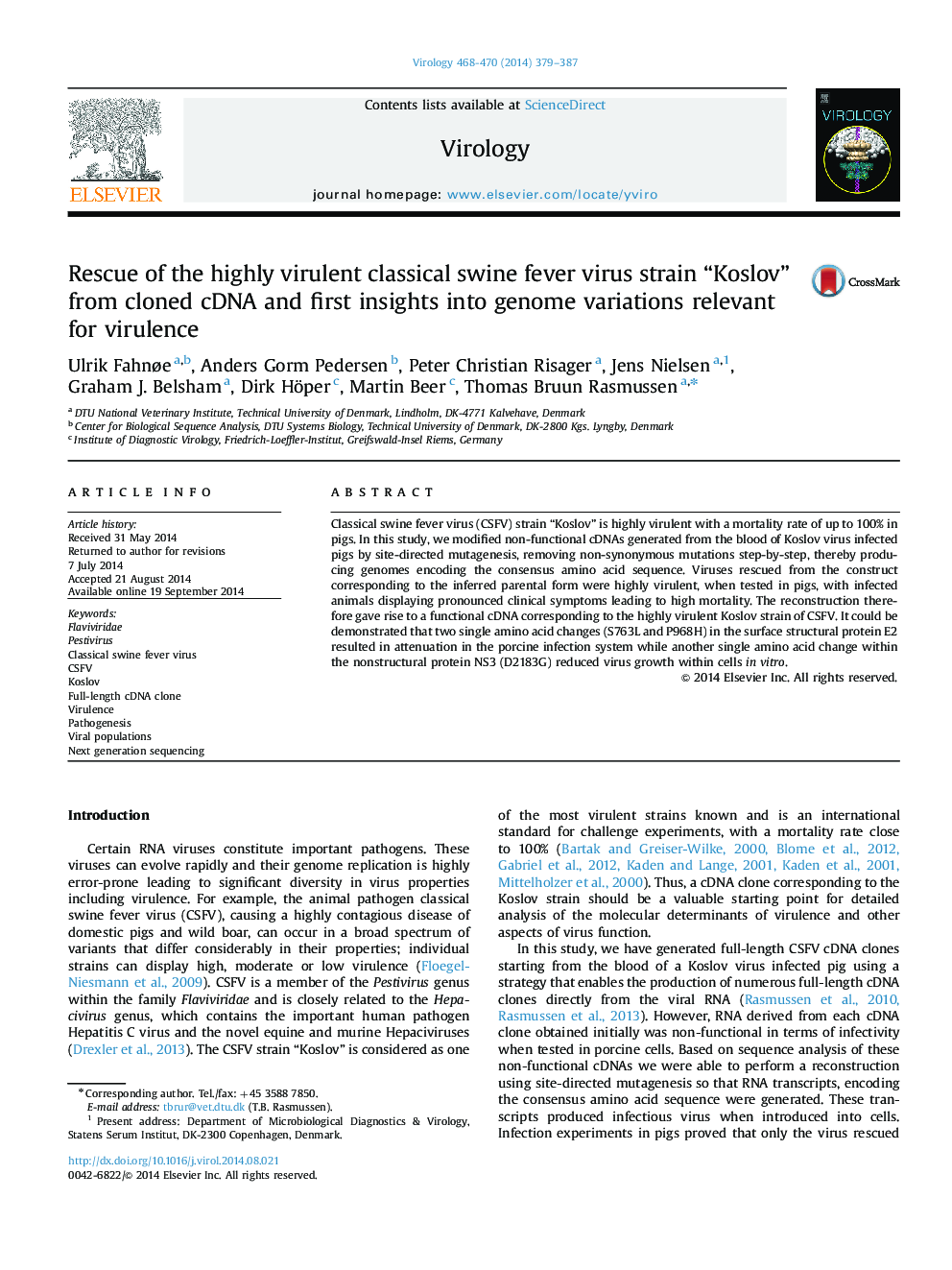| کد مقاله | کد نشریه | سال انتشار | مقاله انگلیسی | نسخه تمام متن |
|---|---|---|---|---|
| 6139834 | 1594244 | 2014 | 9 صفحه PDF | دانلود رایگان |

- Reconstruction of full-length cDNA encoding the consensus amino acid sequence of the CSFV strain “Koslov” has been achieved.
- Virus rescued from this cDNA was highly virulent in pigs.
- cDNA encoding residual amino acid substitutions produced virus which was less virulent that the parental strain.
- Deep sequencing revealed adaptations in viruses rescued from non-consensus cDNA after infection of pigs.
Classical swine fever virus (CSFV) strain “Koslov” is highly virulent with a mortality rate of up to 100% in pigs. In this study, we modified non-functional cDNAs generated from the blood of Koslov virus infected pigs by site-directed mutagenesis, removing non-synonymous mutations step-by-step, thereby producing genomes encoding the consensus amino acid sequence. Viruses rescued from the construct corresponding to the inferred parental form were highly virulent, when tested in pigs, with infected animals displaying pronounced clinical symptoms leading to high mortality. The reconstruction therefore gave rise to a functional cDNA corresponding to the highly virulent Koslov strain of CSFV. It could be demonstrated that two single amino acid changes (S763L and P968H) in the surface structural protein E2 resulted in attenuation in the porcine infection system while another single amino acid change within the nonstructural protein NS3 (D2183G) reduced virus growth within cells in vitro.
Journal: Virology - Volumes 468â470, November 2014, Pages 379-387